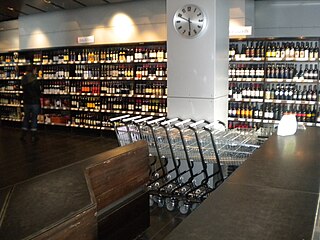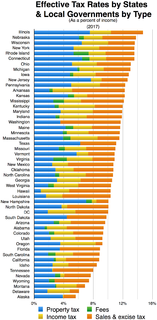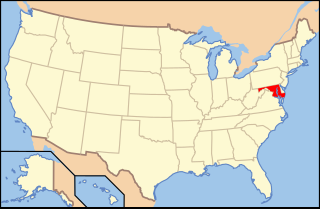
The Bureau of Alcohol, Tobacco, Firearms and Explosives (ATF) is a federal law enforcement organization within the United States Department of Justice. Its responsibilities include the investigation and prevention of federal offenses involving the unlawful use, manufacture, and possession of firearms and explosives; acts of arson and bombings; and illegal trafficking and tax evasion of alcohol and tobacco products. The ATF also regulates via licensing the sale, possession, and transportation of firearms, ammunition, and explosives in interstate commerce. Many of the ATF's activities are carried out in conjunction with task forces made up of state and local law enforcement officers, such as Project Safe Neighborhoods. The ATF operates a unique fire research laboratory in Beltsville, Maryland, where full-scale mock-ups of criminal arson can be reconstructed. The agency is led by Thomas E. Brandon, Acting Director, and Ronald B. Turk, Acting Deputy Director. The ATF has 4,770 employees, and an annual budget of $1.15 billion (2012).

The Alcohol and Tobacco Tax and Trade Bureau, statutorily named the Tax and Trade Bureau and frequently shortened to TTB, is a bureau of the United States Department of the Treasury, which regulates and collects taxes on trade and imports of alcohol, tobacco, and firearms within the United States.

An American Viticultural Area (AVA) is a designated wine grape-growing region in the United States, providing an official appellation for the benefit of wineries.

In the United States, a gun show is an event where promoters generally rent large public venues and then rent tables for display areas for dealers of guns and related items, and charge admission for buyers. The majority of guns for sale at gun shows are modern sporting firearms. Approximately 5,000 gun shows occur annually in the United States.

The State Alcohol and Tobacco Company of Iceland is a state owned company that has a monopoly on the sale of alcoholic beverages and tobacco in Iceland. It runs a chain of 46 stores named Vínbúðin (the wine shop) and is Iceland's sole legal vendor of alcohol for off-premises consumption, though in practice, most bars and restaurants will not prevent you from leaving with purchased drinks. High licensing fees make this an expensive option however, and alcohol is always at least twice as expensive outside the wine shop.
A Federal Firearms License (FFL) is a license in the United States that enables an individual or a company to engage in a business pertaining to the manufacture or importation of firearms and ammunition, or the interstate and intrastate sale of firearms. Holding an FFL to engage in certain such activities has been a legal requirement within the United States since the enactment of the Gun Control Act of 1968. The FFL is issued by the Bureau of Alcohol, Tobacco, Firearms, and Explosives.

State tax levels indicate both the tax burden and the services a state can afford to provide residents.
The Iowa Alcoholic Beverages Division is the alcoholic beverage control authority for the U.S. state of Iowa. Since March 8, 1934, it has regulated the traffic in, and maintained a monopoly on the wholesaling of, alcoholic beverages in the state, thus making Iowa an alcoholic beverage control state.
The Washington State Liquor and Cannabis Board, formerly the Washington State Liquor Control Board, is an administrative agency of the State of Washington. The Liquor and Cannabis Board is part of the executive branch and reports to the Governor. The board's primary function is the licensing of on and off premises establishments which sell any type of alcohol, and the enforcement and education of the state's alcohol, tobacco, and cannabis laws.

The Delaware Division of Alcohol and Tobacco Enforcement (DATE) is a law enforcement agency of the State of Delaware and is a division of the Delaware Department of Safety and Homeland Security (DSHS).

The Division of Alcoholic Beverages and Tobacco (ABT) is the Florida state government agency which licenses and regulates the sale of alcoholic beverages and tobacco. It is part of the Florida Department of Business and Professional Regulation (DBPR).
The Alcohol and Tobacco Division is a division of the Georgia Department of Revenue, in the United States. It ensures that the State collects all taxes and fees, administered by the Department, which are owed by individuals and businesses subject to Georgia's alcoholic beverage, tobacco and coin-operated amusement machine laws and regulations. It provides assistance to taxpayers, license and permit applicants and businesses in the areas of alcohol, tobacco, and coin-operated amusement machines.
The Indiana Alcohol and Tobacco Commission is an Indiana state government agency. The aims are:
The Division of Alcoholic Beverage Control is a Kansas state government agency responsible for enforcing the alcohol laws of Kansas. It issues state licenses and permits, monitors the flow of restricted products, inspects licensed premises and enforces restrictions on underage purchasing and drinking of alcohol. ABC Agents are state certified Law Enforcement agents, therefore being armed and possessing powers of arrest. While primarily focusing on the enforcement of the Kansas laws regarding liquor, tobacco and tax enforcement, Agents at times assist other law enforcement agencies with other matters of an urgent nature.

Alcohol laws are laws in relation to the manufacture, use, being under the influence of and sale of alcohol or alcoholic beverages that contains ethanol. Common alcoholic beverages include beer, wine, and distilled spirits. The United States defines an alcoholic beverage as, "any beverage in liquid form which contains not less than one-half of one percent of alcohol by volume", but this definition varies internationally. These laws can restrict those who can produce alcohol, those who can buy it, when one can buy it, labelling and advertising, the types of alcoholic beverage that can be sold, where one can consume it, what activities are prohibited while intoxicated, and where one can buy it. In some cases, laws have even prohibited the use and sale of alcohol entirely, as with Prohibition in the United States from 1920 to 1933.
Special Occupational Taxpayers are a group of Federal Firearm Licensees in the United States who manufacture, import and/or transfer NFA weapons. The National Firearms Act Special Occupational Taxpayer class is part of the Internal Revenue Code of 1986.
Gun laws in Alabama regulate the sale, possession, and use of firearms and ammunition in the state of Alabama in the United States.

Gun laws in Maryland regulate the sale, possession, and use of firearms and ammunition in the U.S. state of Maryland.

The production of distilled spirits in New Jersey has not been a large industry in the state. Strict alcoholic beverage control laws in place during and after Prohibition (1919-1933) prevented the industry from growing for almost a century. In 2013, the state passed a law creating a craft distillery license. and issued the first new distillery license since Prohibition to Jersey Artisan Distilling

Alcohol laws of Maine regulate the sale and possession of alcohol in the state of Maine in the United States. Maine is an alcoholic beverage control state.















